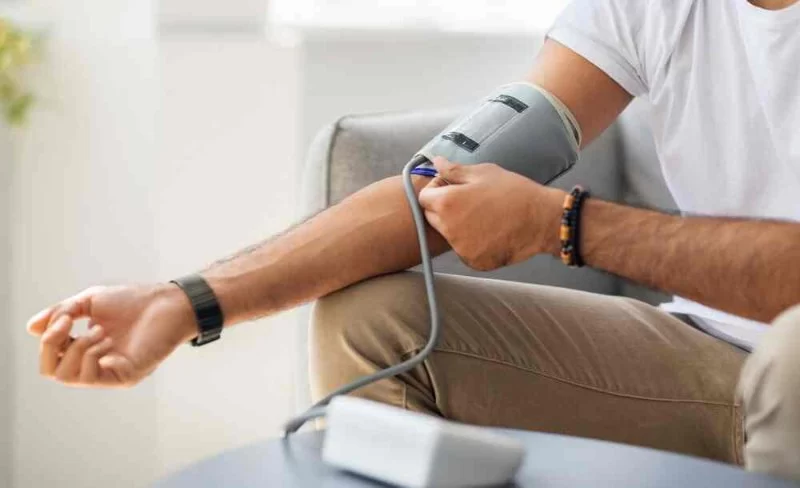How to Manage Blood Pressure in Hot Weather: Essential Tips for Staying Healthy
Hot weather can have a significant impact on your health, especially if you have high blood pressure. When the temperature rises, your body works harder to stay cool, which can cause changes in your blood pressure. For individuals with hypertension or those at risk, it's essential to manage blood pressure effectively during hot weather to avoid complications. In this article, we’ll explore practical tips for managing blood pressure when the temperature climbs, ensuring that you stay comfortable and healthy all season long.

1. Understanding How Heat Affects Blood Pressure
When temperatures soar, your body reacts by expanding blood vessels in an effort to release heat. This process is called vasodilation, and it can lower your blood pressure initially. However, the heat also causes your body to lose fluids through sweat, which can lead to dehydration. Dehydration, in turn, can cause your blood volume to decrease, leading to an increase in blood pressure as your heart works harder to pump blood.
For individuals with high blood pressure, these changes can be particularly concerning. The combination of dehydration and vasodilation can cause blood pressure fluctuations, which can be dangerous if not properly managed. Therefore, it’s important to take proactive steps to regulate your blood pressure during hot weather.
Mount Sinai South Nassau
one healthy way oceanside ny
1 Healthy Way, Oceanside, NY 11572, USA

2. Tips for Managing Blood Pressure in Hot Weather
To help manage your blood pressure during hot weather, consider these essential tips:
1. Stay Hydrated
Hydration is one of the most important factors in maintaining healthy blood pressure, especially in hot weather. When you're dehydrated, your blood volume decreases, which can lead to an increase in blood pressure. Make sure to drink plenty of water throughout the day, particularly when it's hot outside. Avoid excessive caffeine or alcohol, as they can increase dehydration and contribute to blood pressure spikes.
2. Avoid the Hottest Part of the Day
If possible, try to avoid being outside during the hottest part of the day, typically between 10 a.m. and 4 p.m. During this time, the heat can be at its most intense, and your body may struggle to maintain normal blood pressure levels. If you need to be outdoors, try to stay in shaded areas or wear a wide-brimmed hat to protect yourself from direct sunlight.
3. Wear Light and Loose-Fitting Clothing
Wearing clothing that allows your body to breathe and regulate its temperature is essential. Opt for loose-fitting, lightweight, and light-colored fabrics, which help your body stay cool. Tight or dark clothing can trap heat and cause your body to overheat, putting additional strain on your cardiovascular system.
4. Take Cool Showers or Use Cold Compresses
One of the most effective ways to cool down is by taking a cool shower or using cold compresses on your wrists, neck, and forehead. These areas have large blood vessels close to the skin, and cooling them can help regulate your body temperature quickly, reducing stress on your heart and blood vessels.
5. Monitor Your Blood Pressure Regularly
During hot weather, it's crucial to monitor your blood pressure more frequently. Use a home blood pressure monitor to check your readings daily. If you notice any significant increases or feel unwell, contact your healthcare provider for advice. Keeping track of your blood pressure will help you stay aware of any changes and enable you to take action if needed.
3. How to Recognize Heat-Related Illnesses
Heat-related illnesses, such as heat exhaustion or heatstroke, can pose serious risks, especially for individuals with high blood pressure. It's important to be aware of the symptoms of these conditions so you can take prompt action:
- Heat Exhaustion: Symptoms include heavy sweating, weakness, dizziness, nausea, and headaches. If you experience any of these signs, move to a cooler place, hydrate, and rest.
- Heatstroke: Heatstroke is a medical emergency and is characterized by confusion, rapid heartbeat, high body temperature, and loss of consciousness. If you suspect heatstroke, seek immediate medical attention.
By staying vigilant and recognizing these symptoms, you can take proactive steps to protect yourself from heat-related illnesses and manage your blood pressure effectively.
4. Real-Life Example: Managing Blood Pressure During Summer
John, a 55-year-old man with high blood pressure, shared his experience managing his health during the summer months. He noticed that every time the temperature climbed above 90°F, his blood pressure would rise significantly, and he often felt lightheaded. After speaking with his doctor, John made a few simple changes to his routine, including drinking more water, avoiding the heat during peak hours, and using a cooling fan at home. These adjustments made a huge difference in keeping his blood pressure stable, even during the hottest days.
John’s story highlights how simple lifestyle changes, such as staying hydrated and avoiding extreme heat, can help manage blood pressure during hot weather. His proactive approach allowed him to continue enjoying summer activities while staying healthy and comfortable.
5. How HeartCare Hub Can Help You Manage Your Blood Pressure
If you're looking for more advice on managing your blood pressure or need assistance with monitoring your health, visit HeartCare Hub. Our team offers a variety of resources and products designed to help you manage your heart health effectively, especially during the hot summer months. From blood pressure monitors to expert advice, we provide everything you need to stay on top of your health.
Check out HeartCare Hub today for tools and tips that will help you manage your blood pressure and stay healthy, no matter the weather.






















Mount Sinai South Nassau
1 healthy way oceanside ny 11572
1 Healthy Way, Oceanside, NY 11572, USA